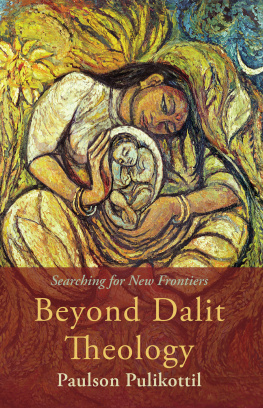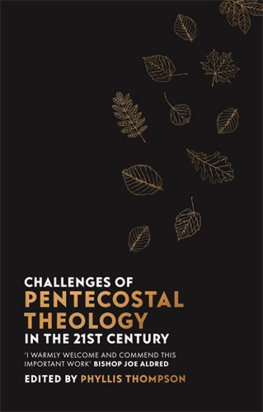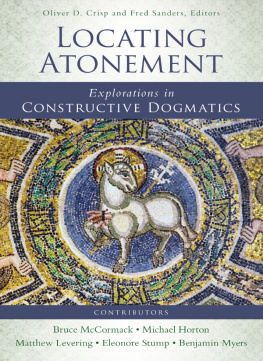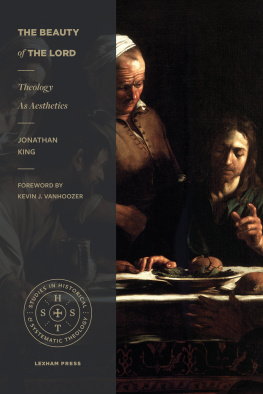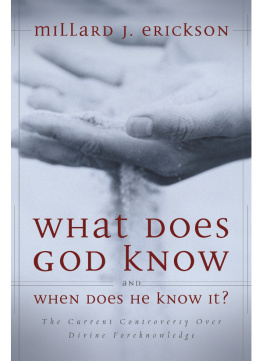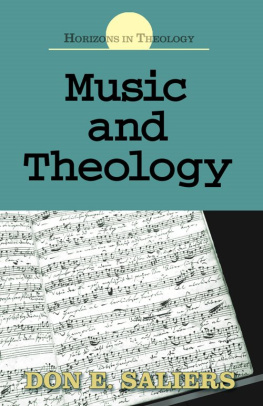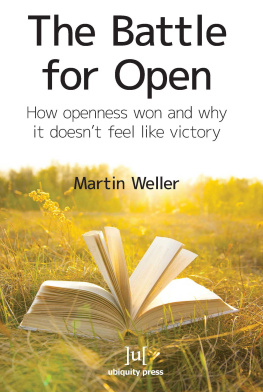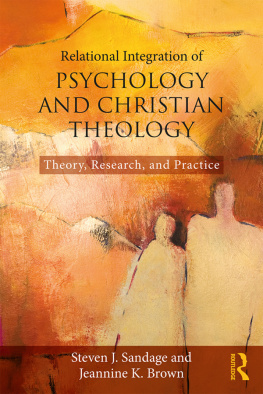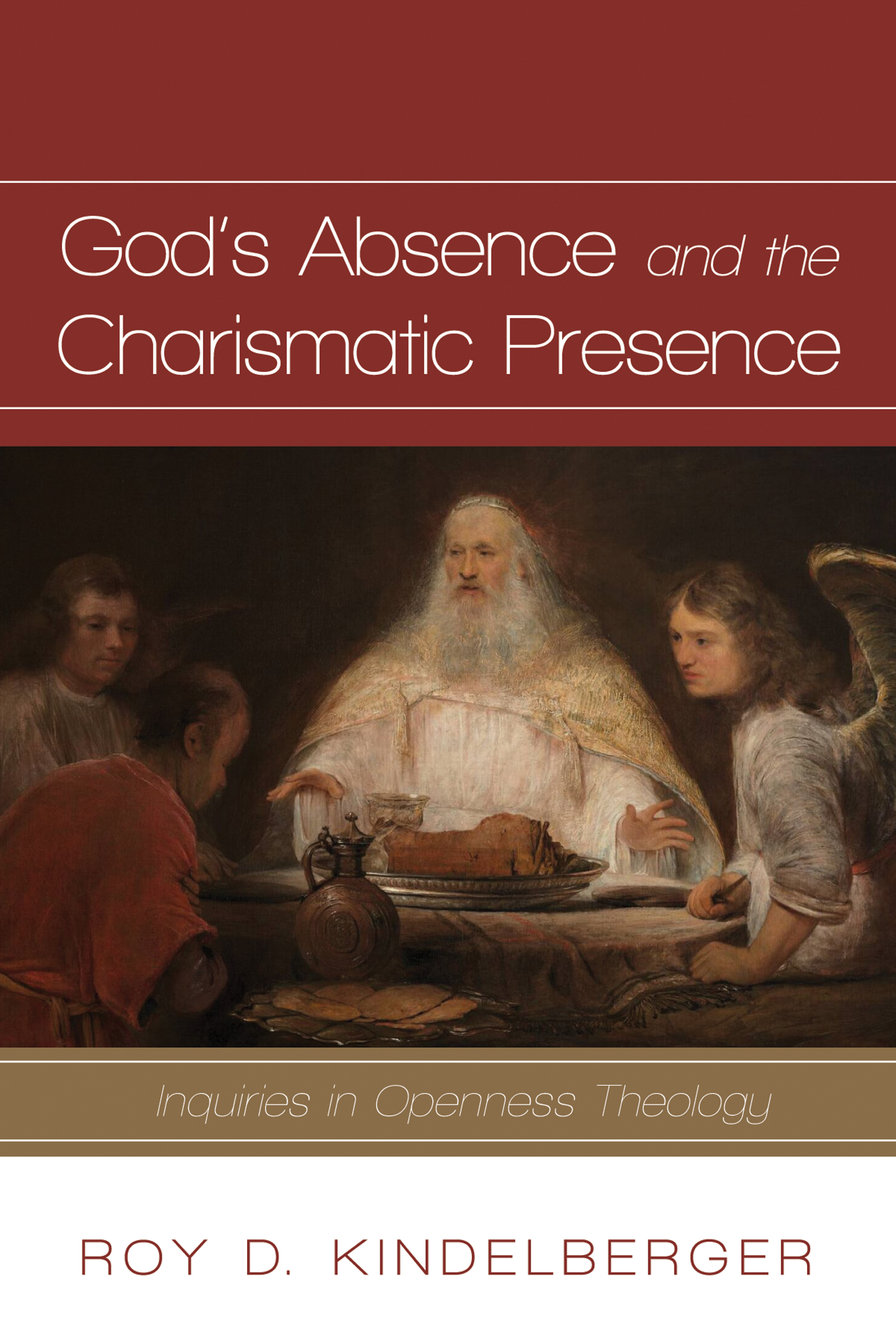Acknowledgments
There are few words worthy enough to express my utmost gratitude toward the most important theologian in my life, my mother Kristine, who has always been a mighty prayer warrior and constant in Gods word.
I am indebted to David von Schlichten for his editing skills, biblical wisdom and scholarship, and many helpful suggestions to improve the manuscript.
I thank God for my fellow elders at Covenant Church EastPat, Bonnie, Mike, and Marywho always display utmost love for our Lord Jesus. I am so thankful for our dear friends Mike and Misty who serve God with extravagance.
I am so grateful to each of you who read the draft and offered your thoughtful comments.
Thank you, Holy Spirit, for surrounding us with so many precious people.
Introduction
God of Wonders and an Open Future
I want to first thank my courageous readers for picking up a book with such a provocative phrase as Gods Absence in its title. Everyone knows something of a hidden God and his elusive presence in the world. We experience it every day of our lives. Yet like the psalmists who cry out, Dont hide your face from me! or Where are you, Lord? , believers often cry out in frustration while still depending on God to be near and ready to step out of the shadows to answer (Pss :; :; :). Even in our darkest hour, the believer is privileged to experience the satisfying end to her groping for God: Weeping may endure for a night, but joy cometh in the morning (: KJV). For the child of God, absence is just presence in disguise.
Now if I were to tell you, God is love, would you believe me? We should give serious thought to such a weighty question. You might have second thoughts if youve only ever heard, for example, that the God of the Bible is one who stringently controls a world full of hate and violence, much of which weve personally experienced. Or, that this God you serve has ordained the certain, unavoidable future demise of some of your friends and family, ultimately leaving them no choice but to remain in their miserable, depraved condition because he chose to save others instead of them.
Many of us have harbored the disturbing intuition that Satan must be some kind of puppet in Gods hands, while at the same time believing that God is somehow not to blame for all the mischief, chaos, and harm done by this creature and those who abide in his kingdom of sin and death. If the world we live in exists under a God with complete, meticulous control, a God who knows the future in every detail and has ordained all that will be, we have no choice but to look around at the suffering and pain and question whether he really is the God [of] love that Scripture declares him to be ( John :, ).
What doesnt add up is the fact that the practical, relational God we pray to and trust throughout our daily experience tends to be quite different from the God classical theologians have described to us. The God many of us have come to know in our devotions, during our worship with the believing community, or in morning prayer is one we feel confident to approach, one who hears us and assures us of his love. Yet the God of classical theism tends to be stubborn and dogmatic, ultimately closed to our input while selfishly seeking to uphold his own honor and reputation. But again, the irony is that most evangelical believers live out the Christian life as if this isnt so. We pray to God as if he really does care about what we say and really will change his mind on matters. We minister to others and serve those in need as if God really does in some way depend on us as his hands and feet. We live as if there might not be a backup plan if we fail in our sphere of influence, that God actually accepts the risk of using imperfect people to accomplish his will. We believe in our hearts that God is vulnerable in the ways he uses us to love the world.
Throughout my theological training, I was taught by many voices that God knows everything about the future, that prayers dont change God, and that God actually doesnt need people in any fundamental way, along with so many other non-relational aspects of God that fall in line with what we think of when we consider the classical view of God. This was something I never thought to question but also never heard an objection to. Yet theres something about all of this that just sticks in our craw when we size up our loving Savior with a god set on damning the world and damning our loved ones for the sake of his glory. Its challenges like these that leave so many people confused and questioning.
The exception to this picture of a dominating and domineering God has often been with liberal theologians who present a God of love and acceptance, but they do so at great cost to the authority of Scripture and the testimony of the gospel of the cross and resurrection. The cost might be a watered-down gospel, a Jesus of history whos not the Son of God, a morality without repentance, or some other defamation of Gods sacred word. The choice between liberalism and classical conservatism leaves much wanting in ones theology and an impossible reconciling of the God we worship with the God of church history, but there is of course another option.
There is a third option presented by those who point to Scripture and desire to show the church a relational God who is open to a risky love because love is at the center of his existence and all his ways. When I first encountered open theism (or freewill theism), like many others, I was skeptical. In many regards, I still am! But what made this journey most worthwhile was being led into Scripture to investigate the solid testimony of Gods word and to find there a God who accepts the risks of loving his creatures. Over the past few decades, the church has been offered this third option for our thoughtful consideration. The openness view looks to Scripture as the final source of truth and revelation and takes seriously the descriptions, experiences, thoughts, and feelings of God that are found there. The God we serve is not only transcendent in power, presence, and knowledge but also immanent and absolutely relational! Exploring the intimate depths of Gods open heart toward people, openness theology seeks to renew and revive the churchs understanding of Gods relationship to us. He is both Almighty God and capable of anger, jealousy, regret, frustration, surprise, desire, sorrow, suffering, and hope.
Looking around at the world, believers intuitively get the sense that God does not always get his way and therefore takes risks. Why else would Jesus teach us to pray to his Father, Your will be done on earth, as it is in heaven (Matt :), if Gods perfect and pleasing will is already being done everywhere? Or, are we to believe that God has two different and competing wills, one permissive and the other hidden and efficacious? For both the casual Arminian and the freewill theist, this classical Calvinist defense of two divine wills has become untenable. Gods singular, consistent, perfect will can and is at times thwarted. God does not allow evil and suffering in the world but himself suffers at its hands due to the nature of true freedom for both humanity and angels, both fallen and unfallen. We can all be certain that the will of humanity does not always line up with the will of God.


